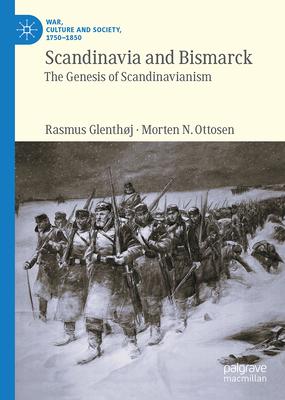This book accounts for Scandinavian unification efforts in a time of great upheaval. The ideological repercussions of the European revolutions of 1848-1849 and the Crimean War (1853-1856) transformed both the international political system and nationalism into more ’realist’ types. The First Schleswig War (1848-1851) having nearly turned into one of Scandinavian unification, the influence of Scandinavianism extended into the Danish, Swedish and Norwegian courts, cabinets and parliaments, attracting interest from the great powers. The Crimean War offered another window of opportunity for Scandinavian unification, before the Danish-German conflict over the duchies of Schleswig and Holstein nearly united Scandinavia upon the outbreak of the Second Schleswig War in 1864. The ultimate failure of Scandinavianism in its unification efforts was not predetermined, although historiography has made it appear as such. Napoleon III, Cavour and Bismarck all actively contributed to plans for Scandinavian unification, the latter even declaring himself as "very strongly Scandinavian".
| FindBook |
有 1 項符合
Scandinavia and Bismarck的圖書 |
 |
Scandinavia and Bismarck 作者:Ottosen 出版社:Palgrave MacMillan 出版日期:2024-05-14 語言:英文 規格:精裝 / 普通級/ 初版 |
| 圖書館借閱 |
| 國家圖書館 | 全國圖書書目資訊網 | 國立公共資訊圖書館 | 電子書服務平台 | MetaCat 跨館整合查詢 |
| 臺北市立圖書館 | 新北市立圖書館 | 基隆市公共圖書館 | 桃園市立圖書館 | 新竹縣公共圖書館 |
| 苗栗縣立圖書館 | 臺中市立圖書館 | 彰化縣公共圖書館 | 南投縣文化局 | 雲林縣公共圖書館 |
| 嘉義縣圖書館 | 臺南市立圖書館 | 高雄市立圖書館 | 屏東縣公共圖書館 | 宜蘭縣公共圖書館 |
| 花蓮縣文化局 | 臺東縣文化處 |
|
|
圖書介紹 - 資料來源:博客來 評分:
圖書名稱:Scandinavia and Bismarck
|










